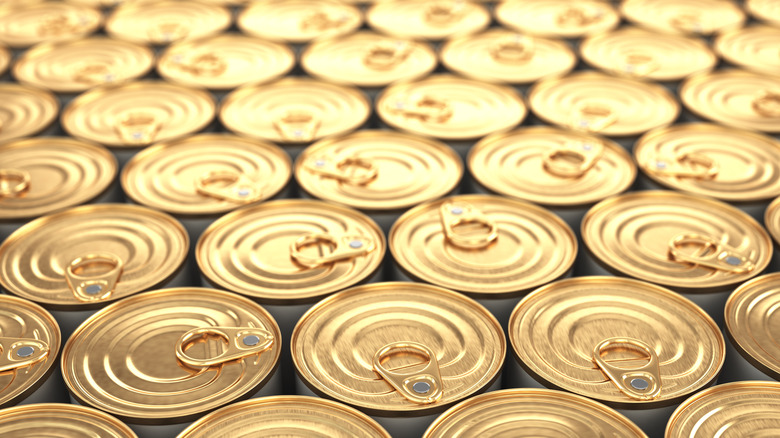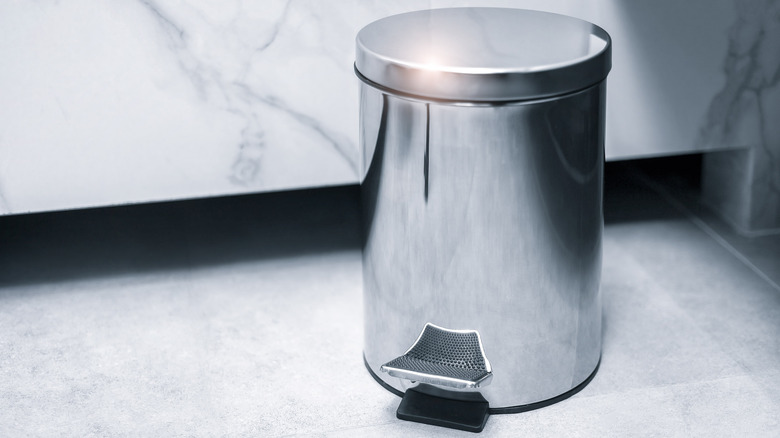Dented Canned Food Is More Serious Than Most People Think
You may have been taught to avoid eating food from dented cans, for one reason or another. Despite this, sometimes grocery stores will sell dented cans at a discount. Or perhaps you've accidentally dropped a can on the floor and wondered if that tiny indentation makes a difference. Is it really unsafe to open that dinged-up can of soup, or should you avoid wasting food and go for it? It depends — but for the most part, you're better off avoiding possible contaminants.
The USDA has guidelines for safely consuming dented cans of food. According to its suggestions, a can that has "a small dent but is otherwise in good shape" can still be eaten, as long as the dent isn't on either of the seams. But if the dent is deep (big enough to lay a finger in) or sits on a seam, it's better to be safe than sorry — discard it.
Dents can introduce bad bacteria into otherwise-safe sealed products through small openings in the metal. And the dangers of eating contaminated canned foods are no joke.
The dangers of dented cans
Botulism is rare, but it can crop up occasionally in canned foods that haven't been sealed or stored properly. Botulism is a serious form of food poisoning. Unlike the temporary upset stomach you might get from eating something that didn't agree with you, this toxin attacks nerves and can lead to breathing trouble, paralysis, and death.
Symptoms of botulism usually appear 18 to 36 hours after ingestion. Some symptoms to watch out for include trouble swallowing, double vision, drooping eyelids, and slurred speech. Though doctors can treat botulism with an antitoxin, this does not undo damage already done, and victims can stay in the hospital for weeks to months recovering.
It's better to avoid taking risks when it comes to a toxin as dangerous as this one. Even if botulism doesn't grow in a dented can, other bacteria can find its way in and fester as well — causing stomach cramps, vomiting, diarrhea, and other unpleasant side effects.
When in doubt, throw it out
Dents are only one indicator that a can of food has become unsafe to eat. Be sure to inspect all canned food products before eating them, and discard them if the exterior has any bulges or swollen spots, cracks, or other obvious signs of damage. If the can is leaking at all, dispose of it as well.
You can also check the interior of the can after opening it; sometimes safety issues won't show clearly from the exterior. Food that looks foamy, discolored, or abnormal from what you're expecting to see on the inside should be tossed. Any mold or strangely-colored liquid should also be avoided. You can do a sniff test as well. The nose knows best, so if it doesn't smell appetizing, don't eat it.
And if you're thinking of cooking that dented can anyway to remove the bacteria inside with heat, think twice. While cooking things thoroughly greatly reduces the risk of foodborne illness, boiling contaminated food won't always remove all the toxins and isn't a failsafe way to ensure safety.


